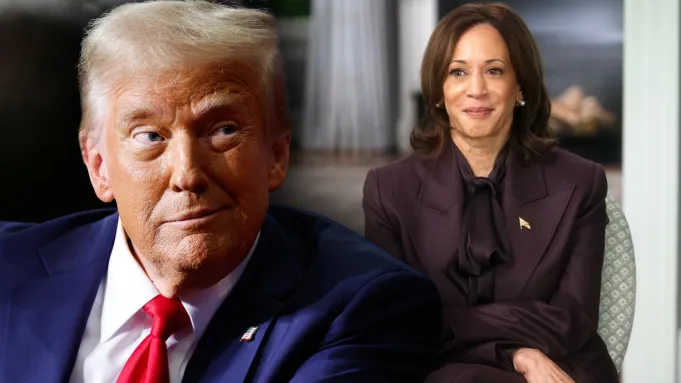### Exploring the Impact of Media on Politics: The $20 Billion Lawsuit Involving CBS News
In recent years, the relationship between media outlets and political figures has come under increasing scrutiny. One striking example of this tension is President Trump’s recent $20 billion lawsuit against CBS News. This legal action highlights significant concerns regarding media practices and the authenticity of public communication, issues that resonate deeply in our increasingly digital world.
#### The Genesis of the Lawsuit
The lawsuit stems from an interview that CBS News conducted with former Vice President Kamala Harris. President Trump’s legal team has accused the network of deceptively editing this interview in a way that misrepresents the facts, leaning towards potentially damaging consequences. This case emphasizes the ongoing debate over media responsibility and the ethical boundaries of news editing.
#### Deceptive Editing: Unveiling the Allegations
Deceptive editing refers to the manipulation of video or audio to alter the context or meaning of the original content. In political discourse, such practices can dramatically skew public perception and influence political narratives. The accusation from President Trump’s camp points to broader issues within the media industry, suggesting an urgent need for transparent and reliable journalism.
#### The Legal and Social Implications
A $20 billion lawsuit is no small matter and underscores the severity with which the accused party views the alleged misconduct. Legal battles of this magnitude can set precedents and foster public discourse on the necessity of maintaining journalistic integrity. They stress the importance of a balanced rapport between media agencies and the subjects they cover, ensuring that information relayed to the public upholds the highest standards of accuracy and fairness.
#### Ethical Journalism: A Cornerstone for Democratic Societies
The role of the media as the “Fourth Estate” is foundational to democratic governance. It serves as a check on power, providing citizens with the information necessary to make informed decisions. However, claims of deceptive editing potentially undermine this role, threatening the trust that needs to exist between the public and the press. Ethical journalism practices are not just idealistic standards but essential criteria for the effective functioning of a democracy.
#### Moving Forward: Lessons and Changes
The litigation between President Trump and CBS News serves as a catalytic moment for media professionals everywhere. It prompts a reassessment of editorial standards and practices. News organizations may need to adopt more stringent verification processes and ensure that their editing practices do not distort the truth, regardless of the political leanings of their subjects.
Moreover, this case might encourage the implementation of more robust training for journalists, emphasizing ethical standards and the implications of their work on public opinion and political processes. Newsrooms could also benefit from increased transparency regarding their editing decisions, possibly through behind-the-scenes content that clarifies the editing process.
### Conclusion
As we await the outcomes and repercussions of Trump’s $20 billion lawsuit against CBS News, it is clear that this event could potentially reshape the landscape of political journalism. For journalists and media outlets, it is a call to reevaluate and reaffirm their commitment to truth and ethical reporting. For the public, it serves as a reminder of the critical role of being vigilant consumers of news, ready to question and assess the credibility of the information presented to them.
In a world where information is both a tool and a weapon, maintaining the integrity of the discussions we have about our leaders and their policies is not just important—it is essential for the health and future of our democratic institutions.










